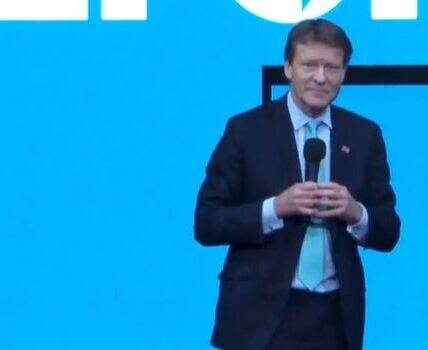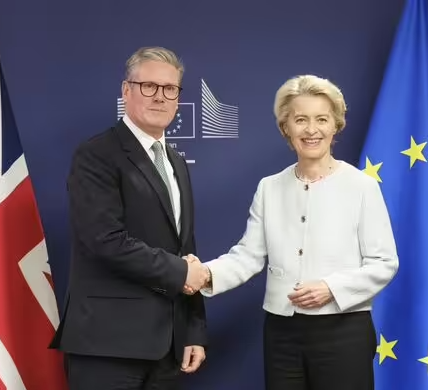Tomatoes, batteries and fish sold to Britons are among a host of items which may have been produced by forced labour

There is deep concern that goods produced by forced labour are reaching the UK (Image: Wiktor Szymanowicz/Anadolu via Getty Images / Yu Fangping/VCG via Getty Images)
Britain is in danger of becoming a “dumping ground” for goods made using forced labour, the Government has been warned. Sir Keir Starmer and his team have been urged to ensure no one in the UK profits from the “broken backs of slave labour” in countries including China and the Democratic Republic of Congo.
No “effective safeguards” are in place and human rights abuses are “so pervasive” it is “inevitable” such goods are entering the UK market, according to Parliament’s joint committee on human rights.
The committee’s report states there is “evidence of the use of child labour in artisanal mines in the Democratic Republic of Congo”. The country is “source of around 70% of the world’s cobalt which is a key ingredient in lithium-ion batteries and magnets”. The report warns there is “evidence to indicate that children are working in highly dangerous environments, with exposure to toxic dust, and with no protective”.
It cites a BBC investigation which found tomatoes “being sold in the UK and labelled as being from Italy when they were in reality highly likely to have been produced in China under forced labour conditions”. There is alarm at reports that “North Korean workers are being subjected to forced labour on Chinese fishing vessels” – and it is claimed in some cases they “have not set foot on land for over 10 years”.
Globally, around “one in five garments made from cotton have been linked to forced labour in the Xinjiang area of China”.
It warns that Britain lacks the type of import bans on goods linked to forced labour seen in the United States and the European Union.
Lord David Alton, who chairs the committee, said: “Other nations have progressed in eradicating these appalling abuses from their supply chains, but the UK has been left behind.”
There is strong concern about the use of forced labour in five key sectors – electronics, garments, fish, timber and textiles – which are worth around £19billion in imports.
The MPs and peers want the Government to make it illegal to sell goods made using forced labour. They call for companies to face fines if they fail to carry out “due diligence” on their supply chains.
Lord Alton added: “Most of all, we want to see strong leadership from the Government. It’s intolerable in the 21st century that we profiteer on the broken backs of slave labour, from Uyghur servitude in Xinjiang to child labour in the cobalt mines of the Congo, and elsewhere.
“The Government knows [the] nature of the problem and the challenge but meaningful action has been lacking.”
The report warns of “confusion within government about which Minister or department should be taking the lead on tackling forced labour”.
The committee wants forced labour risks to be a “key consideration in future trade deals”.
It warns that technologies used in the switch to green energy rely on “critical minerals” which come with a high risk of forced labour – with the solar sector a particular source of concern.
Peter Frankental of Amnesty International UK said: “This compelling report reinforces what Amnesty and others have long warned: the UK’s weak, voluntary approach to tackling forced labour in supply chains is wholly inadequate. Without robust, enforceable laws, mandatory human rights due diligence, and meaningful penalties for companies that profit from abuse, the UK risks becoming a dumping ground for goods tainted by exploitation.”
Mr Frankental called on HMRA to “seize goods where there is reasonable suspicion they were produced with forced labour”. He pressed for UK businesses trading in such goods to be investigated under the Proceeds of Crime Act.
He said: “The Government must show both moral and political leadership to end the scourge of forced labour products flooding our high streets and online marketplaces.”
A Government spokesperson said: “No company in the UK should have forced labour in its supply chains, and we expect businesses to do everything in their power to remove any instances of this. We have launched a review into the UK’s approach to responsible business conduct as part of our trade strategy, including tackling forced labour, and we will consider the Joint Committee on Human Rights’ recommendations.”


